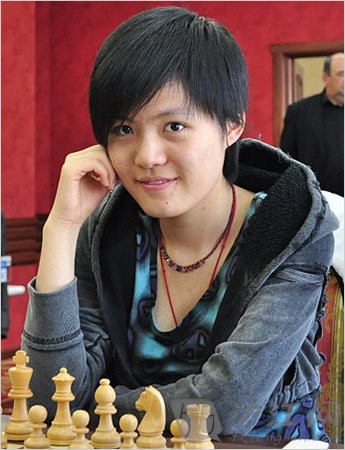中文“吃苦”登上纽约时报 揭秘中国崛起的奥秘

这些年来西方媒体上或直接或间接、或音译或意译引用的汉语词是越来越多。近日,纽约时报知名的专栏作家Nicholas D. Kristof(中文名纪思道)发自北京的一篇文章就使用了一个纯汉语词来描述中国人和中国的崛起。这个词是什么呢?
纪思道的这篇文章题为China Rises, and Checkmates,可译为“中国崛起,将军!”这么大的一个标题,但内容是从一个小女生的故事说起的。文章这样写道:
If there’s a human face on Rising China, it belongs not to some Politburo chief, not to an Internet tycoon, but to a quiet, mild-mannered teenage girl named Hou Yifan.
如果让一个人来代表崛起中的中国,不应该是某位政治局常委,也不是某位互联网行业大亨,而应该是一名文文静静、举止温和、名叫侯逸凡的少女。
侯逸凡,5岁学棋,12岁跻身特级大师行列,16岁成为女子国际象棋冠军;她是全世界最年轻的新生代棋后,是位“天才少女”。
纪思道在文章中描述了他和小姑娘下棋的过程,然后总结说:
Cynics sometimes suggest that China’s rise as a world power is largely a matter of government manipulation of currency rates and trade rules, and there’s no doubt that there’s plenty of rigging or cheating going on in every sphere. But China has also done an extraordinarily good job of investing in its people and in spreading opportunity across the country. Moreover, perhaps as a legacy of Confucianism, its citizens have shown a passion for education and self-improvement — along with remarkable capacity for discipline and hard work, what the Chinese call “chi ku,” or “eating bitterness.”
一些愤世嫉俗的人有时认为中国之所以能够崛起为世界大国,主要是因为政府操纵货币汇率和贸易规则所致。的确,在许多领域都存在大量操弄和欺诈的行为。然而,中国在对人力资源的投资和在全国各地创造机会方面也做得非常出色。此外,也许是儒家的传统,中国的公民们热衷于教育和自我提高,同时展现出了异乎寻常的自律和勤奋工作的能力——中国人称之为chi ku,即eating bitterness。
在这段话里,纪思道直接使用了拼音chi ku来表示“吃苦”,并直译为eating bitterness,也就是自律加勤奋,discipline and hard work。在这位美国专栏作家看来,侯逸凡本人就是个吃苦而成功的代表:
文章在最后一段为全文做结论时,非常自然地再次使用了eating bitterness这个词:
There’s a lesson for us as well. China’s national commitment to education, opportunity and eating bitterness — those are qualities that we in the West might emulate as well.
对我们来说,这是一堂课。中国全民族对教育、机遇和吃苦的执着,这正是我们西方人可以效仿的品质。